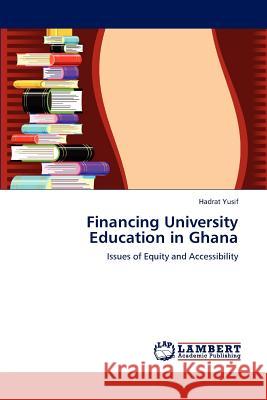Financing University Education in Ghana » książka
Financing University Education in Ghana
ISBN-13: 9783659143267 / Angielski / Miękka / 2012 / 196 str.
Since 1994, the World Bank has proposed cost sharing regarding tertiary education financing in order to address the crucial issues of improving access, equity and sustainable finance in tertiary institutions. In 1996, this cost sharing concept was introduced in fully public supported universities in Ghana due to declining government revenue in the 1980s and increasing demand for university education. In this cost sharing, public finance constitutes about 80% of universities' income while private finance forms about 20%. This study was conducted to investigate issues of equity and accessibility associated with this university education financing strategy in Ghana. The book adds to the economics of education literature on Sub-Sahara Africa and it should be very useful for students and researchers of economics of education as well as policy makers
Since 1994, the World Bank has proposed cost sharing regarding tertiary education financing in order to address the crucial issues of improving access,equity and sustainable finance in tertiary institutions. In 1996, this cost sharing concept was introduced in fully public supported universities in Ghana due to declining government revenue in the 1980s and increasing demand for university education. In this cost sharing, public finance constitutes about 80% of universities income while private finance forms about 20%. This study was conducted to investigate issues of equity and accessibility associated with this university education financing strategy in Ghana. The book adds to the economics of education literature on Sub-Sahara Africa and it should be very useful for students and researchers of economics of education as well as policy makers.











